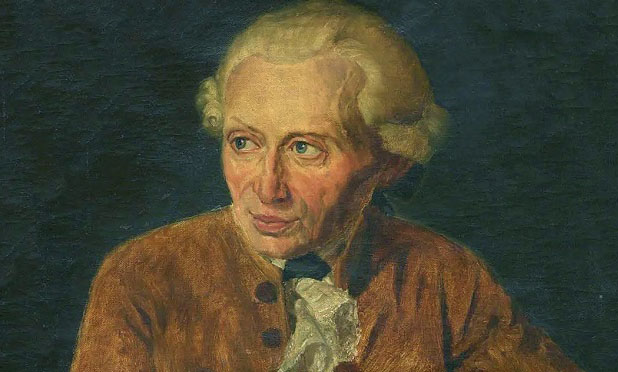
I Kant stop philosophising. You got me right. I mean I can´t stop philosophising. But I Kant stands for Immanuel Kant. He was the German philosopher who shook the foundation of traditional thinking and logic, a bridge builder between Enlightenment and Idealism.
He stood tall, dwarfing his contemporaries, so vocal to the point of almost silencing them, and even attempting to erase them from the sand of the history of philosophy. I could imagine his contemporaries telling him, Immanuel Kant, to stop philosophising and his response, I can´t stop philosophizing. Possessed by the spirit of Kant, I too can´t stop philosophising. This reality informs the topic of this essay, I Kant stop philosophising.
Today will make it 300 years since Immanuel Kant came into existence. Born on April 22, 1724 in Königsberg then a German city. Today Königsberg belongs to the Russian territory and has been renamed Kaliningrad. He went to the university of Königsberg and studied philosophy, mathematics and classics and was an ardent fan of Isaac Newton. It was not easy for him to obtain a professorial chair in Königsberg.
However, he was not ready to move to another place despite the available offers elsewhere. He preferred the local inspiration of this quiet village of Königsberg. He worked as a private teacher for 9 years after which he became a professor at the age of 46. Today, the city of Kaliningrad, former Königsberg, celebrates a great icon, who could not find it easy here, yet decided to pour out his life for the same place that made life difficult for him. That is the spirit of patriotism.
Immanuel Kant studied theology but he was more interested in classics, physics and mathematics. He was jack of all trade and master of all. In his epistemology, he was influenced by Christian Wollf and David Humes. Both philosophers represented the then rival schools of rationalism and empiricism respectively. For the rationalists, knowledge is acquired apriori or as innate ideas and does not require any demonstration.
This was championed by the likes of René Descartes and Gottfried Wilhelm Leibniz. For the empiricists, knowledge is acquired through experience aposteriori. This was championed by David Hume and John Locke. For John Locke, man is born with a tabularasa (clean slate) mind. Initially, Kant bought the rationalism of Christian Wollf. That was the case until his conversion by Hume. According to Kant, it was David Hume that woke
him from his dogmatic slumber.
The consequence was the rejection of both schools giving way to his transcendental philosophy – a unification of both schools of thought. In his Critique of Pure Reason, Kant distinguishes between the noumenal and the phenomenal worlds.

Our minds could not know things as they are in the noumenal world rather things as they appear to us in the phenomenal world. This is the inseparability of his metaphysics from epistemology. Perceptions and intuitions are thus distinct but complementary. While rejecting the idea of tabula rasa, Kant believed that knowledge is not possible without perception.
What is perceived is in turn converted to concepts and this yields to knowledge of things, not as they are, but as they appear to us. That is why he concludes that reality is a subjective and creative product of the mind. His ability to reconcile the contemporaneous currents of rationalism and empiricism made him an iroko among the Enlightenment philosophers.
His ethics centres on the belief in the autonomy of the will, existence of God and the immortality of the soul. In recognition of the value of humanity, everyone acts with a belief that God created the world according to certain principles of justice. Since God cannot be known as he is, he advocates for a rational religion. In his autonomy of the will, morality should not be imposed, rather we should act in such a way that our action at each point in time could be a universal maxim. This is called categorical
imperative and things are done for duty sake.
Built on previous philosophies by a way of deconstruction and reconstruction, Kant established what is called today a Kantian Copernican revolution. His philosophy influenced the works of German idealists such as Fichte, Schelling and Hegel. Though stationed in Kaliningrad, the thoughts of Kant either through endorsement or critique spread to Tübingen, Jena and Berlin. The centrality of the idealists´ philosophies was on the consciousness of the subjective I. The German idealists were regarded as being absurd and ambiguous but in reality, they were not. With the emergence of the Existentialism of Kiekergard and materialism of Marx, idealism began to wane. However, it shaped the political ideologies of the time.
Today, there is all over the world a renewed interest in the philosophical idealism. Philosophy does not die. Through endorsement and refutation, it grows and metamorphoses. The synthesis of rival thoughts makes a better product. This is succinctly captured in Hegel´s Phenomenology of the Spirt, where a philosophising mind should work for and with death, that the spirit might live.
Already dead since 1804, the spirit of Kant lives on in every generation and culture. Every philosopher is a product of his environment and he contributes to the development of the same environment.
This is the poietic character of philosophy. It is the rational activity of man as a thinking being. Our society unfortunately looks down on philosophy. There is no place for the Aristotles, Platos, Descartes, Hobbes and even Feyerabend of our time and world.
But a nation without a guiding philosophy is a nation without focus. The problem is not actually the existence of philosophy in our society, rather the recognition of philosophy and its articulation by the academia.
This articulation will actually position the African nations on the limelight and contribute to her economy. This we can learn from other continents.
Personally, I can´t stop philosophising. Immanuel Kant couldn´t.





